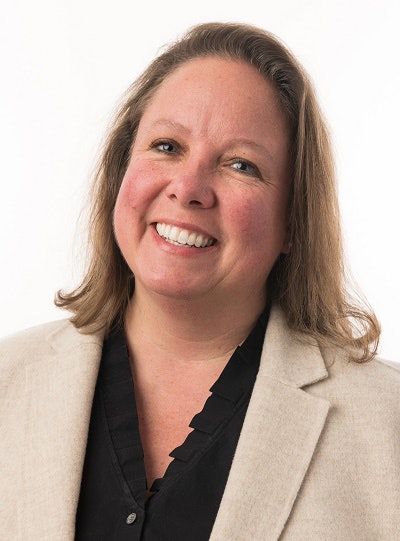A new survey reveals that people of all ages feel financial insecurity, but are willing to invest in training and education to advance their careers.
Champlain College Online recently commissioned Full Circle Research to survey Millennials (ages 21-37), Gen Xers (38-53) and Baby Boomers (54-72) about how they perceive their financial stability and career trajectory in today’s economic landscape.
The report, “Adult Viewpoints 2019: Economic Security and Advancement in the Workforce,” points out a significant sense of financial instability among respondents.
Forty-eight percent of the 1,004 respondents describe themselves as “somewhat” or “very” financially insecure and 25 percent feel their current jobs are at risk of becoming extinct. Forty percent view themselves as less financially secure than their parents. On the upside, respondents said that they are willing to invest in continued training and education to remain relevant in the job market.
Dr. Laurie Quinn, interim president of Champlain College, said the college has been using surveys to stay informed on the needs and interests of adult learners.
 Dr. Laurie Quinn
Dr. Laurie Quinn“As a professionally-focused college and one that serves adult learners, really understanding that landscape of investment in higher ed and also career mobility are very important to our students’ success,” said Quinn.
Both the Burlington, Vt. campus and Champlain College Online focus on high-demand professional majors and business programs, such as accounting, computer & digital forensics, data science and game programming. The online offerings includes associate, bachelor’s and master’s degrees as well as undergraduate and graduate certificates. The total undergraduate population of Champlain College is 3,823, and 44 percent of the students are pursuing their degree online.
Quinn said the college has seen increased interest in certificate programs both from adult learners and from employers with which Champlain has workforce partnerships.
“Thinking together with those two key audiences has really led us to work on honing the credential portfolio that we offer,” said Quinn. “We’re actually doing some work now to make sure that number one, we have the right portfolio of certificates based on current interest and on the emerging future, and number two, we’re really looking at how do we ensure that those can be stacked into the full degree model for those whom that’s the right answer.”
The respondents were divided evenly among the three age groups and also had racial, ethnic and geographic diversity. Educational levels ranged from high school diploma or less to master’s degree or higher, with the largest number having earned a bachelor’s degree. Sixty-eight percent of respondents identified themselves as being employed full-time.
Perceptions of financial security increased with education level. Fifty-one percent of respondents with a master’s degree or higher said they are “somewhat” to “very” secure, as compared to those with a high school diploma or lower, only 23 percent of who saw themselves that way. The report noted that financial insecurity issues exist across age groups, and full-time employment is not an indicator of feeling financially secure.
Thirty percent of respondents said they were “somewhat” or “very” insecure in their chosen fields of work. Security increased with education level. Twenty-three percent of total respondents don’t believe they have the skills to remain current with changes in their fields.
In response to issues of financial and/or job insecurity, respondents indicated a willingness to pursue actions to improve their situations, including further education. Thirty-seven percent of respondents said they were likely to complete a certificate program, 27 percent a master’s degree and 25 percent a bachelor’s degree, which could be either at a campus or online.
“We’re wanting to build confidence for the adult learner, somebody who is perhaps not feeling that the future in their current work is as clear as they’d like it to be and maybe is nervous about a potential recession,” Quinn said. “We want to shore up that prospective student’s belief in higher education.
“We’re also using this data to help inform our discussions with employers,” she added.
Champlain College has national partnerships through a program called truED and works with more than 60 public sector, nonprofit and private sector organizations to address skill gaps and workforce challenges. Students can develop career-focused skills through online classes, coursework, labs and discussions.
The report notes that insecurity and uncertainty exists across generations, with Baby Boomers feeling it most acutely. Findings also suggest there are opportunities to increase security, most notably through education and partnerships.
“By creating more pathways for workers at all levels, in all industries, to pursue actions that will help them stay competitive and access opportunities for advancement, we can create a stronger, more secure workforce,” said Quinn.
“It [requires institutions] being agile about updating content to make sure you’re reflecting the workforce reality today and coming on the horizon,” she added. “We won’t serve our students in the ways that they deserve and we won’t support workforce and talent development in the ways that these industries need if we are not able to continue to adapt our programs in real time.”















